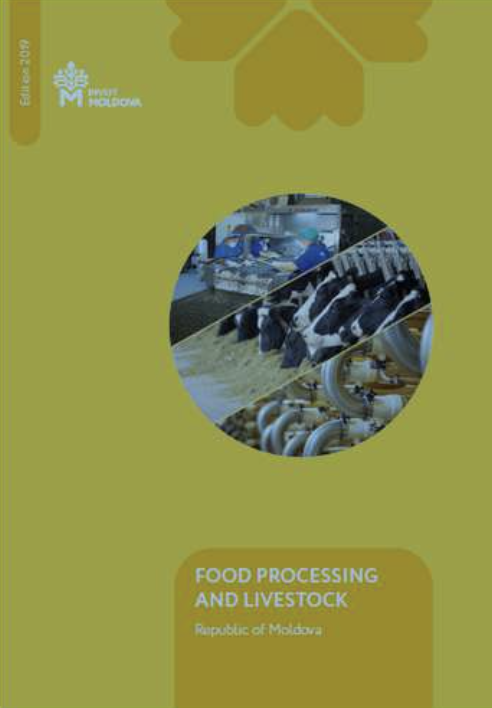
Agriculture has always been one of the leading sectors in the Moldovan economy, largely
for natural reasons: the rich soil resources, biological diversity, good climate, and geographical
conditions. There is also a tradition of hardworking farmers and, more recently, private entrepreneurs
interested in investing in Moldova’s agriculture. Agriculture has an important impact on the social
and economic development of Moldova, since it meets the majority of the population’s food
requirements domestically and prevents the country from being dependent on international
sources, while supplying raw materials of other sectors dependent on agriculture.
Moldova has exceptional resources that are highly favorable to agricultural production. Its
black, fertile soil is ideal for growing corn, fruit, and vegetables. Traditionally, the agriculture and
processing industry represented the main branches of the national economy, placing Moldova
among the main suppliers of agricultural products and foodstuffs on the huge ex-USSR market.
Agriculture represents the dominant land use in Moldova. By far the most significant land used is
arable land for annual crop production. Much of this arable land sits on highly fertile and productive
black chernozem soils, which cover 75 percent of the country, especially in the northern districts.
High quality soil resources, along with various microclimates, support a wide array of annual and
perennial crop production across the country.
The major advantages of doing agriculture in Moldova are:
Agricultural land use in the Republic of Moldova, 2019, thousands hectares
Favorable geographical location and climate, it is possible to grow early varieties of vegetables,
which is a competitive advantage for Moldova. The country has moderate continental climate
with short and relatively mild winters and long summers. Moldova has good humus soils and
sufficient water resources.
Moldova’s population accumulated affluent experience and knowledge in growing high value
crops such as: fruits and vegetables, tobacco, as well as in viticulture and wine production.
The fertile soil and adequate labor force are able to ensure efficient specialization in growing
products for export with high profitability and productivity.
The most important natural resource for the country’s economy is the soil. The chernozem types
account for about 2/3 of the approximate 10 soil types found in the country. These soil types are
some of the most fertile soils, but they are also among the most receptive, and thus vulnerable to
certain risk phenomena (rain showers, droughts, etc.), as well as to the technogenic impact.
Farm Structure
Moldovan agricultural sector is composed of two major sub-sectors: the corporate sector
comprising large companies and the individual sector that includes peasant farms and household
land in private property. Small farms, especially subsistence and semi-subsistence farms generate
a limited surplus of high value added crops (fruits, nuts, grapes, vegetables, potatoes) that are
mostly sold in open air agricultural markets.
At the same time, large scale agricultural companies are specialized in the production of low
value added crops (such as cereals, oilseeds, sugar beet), and employ limited labour force due
to the high level of mechanized agricultural operations. This specialization has been driven by
a number of factors, such as the relatively low production cost of these crops, the availability of
agricultural machinery allowing the rapid cultivation on large areas, relatively simple and cheap
post-harvest facilities, as well as assured markets for these commodities.